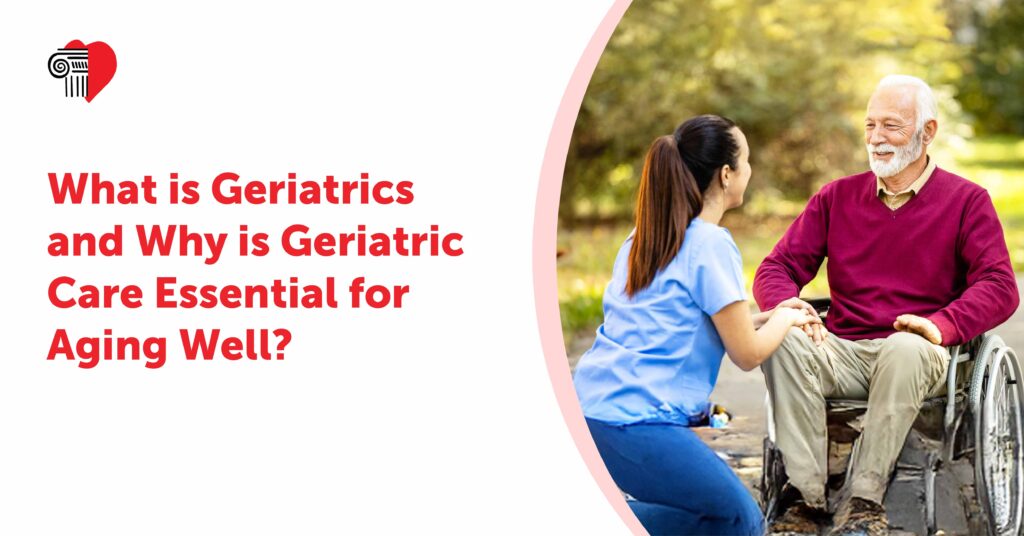
What is Geriatrics and Why is Geriatric Care Essential for Aging Well?
Aging is a natural phase of life that brings with it unique challenges and opportunities. As people age, they often require specialized healthcare to maintain their quality of life, independence, and dignity. This is where geriatrics, the branch of medicine dedicated to the care of older adults, plays a vital role. Understanding what geriatrics entails and why geriatric care is crucial can empower individuals and families to make informed choices about aging well.
What is Geriatrics?
Geriatrics focuses on the health and well-being of older adults, typically those aged 65 and above. It encompasses the prevention, diagnosis, treatment, and management of common health conditions in this population. Unlike other medical fields, geriatrics takes a natural approach, addressing physical health and cognitive, emotional, and social well-being.
A geriatrician, a doctor specializing in geriatrics, is trained to handle the complexities of aging. They create tailored care plans addressing older adults’ specific health and lifestyle needs. These plans often consider multiple factors, such as chronic conditions, mobility limitations, mental health, and medication management.

What is Geriatric Care?
Geriatric care goes beyond medical treatment. It is a comprehensive approach to supporting older adults as they navigate the aging process. This care can take many forms, including:
1. Medical Management
Geriatric care addresses chronic illnesses such as arthritis, diabetes, heart disease, and osteoporosis. Geriatricians ensure that treatment plans are tailored to minimize side effects and avoid complications from multiple medications (polypharmacy).
2. Cognitive Health
With age, cognitive issues like memory loss, dementia, and Alzheimer’s disease become more prevalent. Geriatric care includes early detection, management, and support for cognitive decline.
3. Emotional Well-Being
Older adults may face feelings of isolation, depression, or anxiety. Geriatric care emphasizes mental health, providing resources and support to enhance emotional resilience.
4. Functional Independence
Helping seniors maintain their independence is a core goal of geriatric care. This includes physical therapy, fall prevention, and assistive devices to improve mobility and safety.
5. End-of-Life Care
Geriatric care also involves sensitive and compassionate planning for end-of-life stages, ensuring comfort and dignity during this time.
6. Care Coordination
Geriatricians often work in collaboration with a team of healthcare providers, caregivers, and family members to deliver seamless care.

Why is Geriatric Care Essential for Aging Well?
The importance of geriatric care cannot be overstated. It plays a critical role in ensuring that older adults live healthier, happier, and more fulfilling lives. Reasons for the need for geriatric care:
1. Managing Complex Health Conditions
Older adults often face multiple health issues simultaneously. Geriatric care ensures these conditions are managed effectively, reducing the risk of complications. For example, a geriatrician might prioritize treatments for a patient with both diabetes and heart disease, ensuring that one condition’s management doesn’t worsen the other.
2. Promoting Preventive Health
Prevention is a cornerstone of geriatric care. Routine health screenings for bone density, cholesterol, cancer, and cognitive health help identify potential concerns early, ensuring prompt and effective care.
3. Reducing Polypharmacy Risks
Many older adults take several medications, which can lead to harmful drug interactions or side effects. Geriatricians carefully review and optimize medication regimens to improve safety.
4. Enhancing Quality of Life
Geriatric care focuses on improving daily living. Whether it’s through pain management, mobility assistance, or emotional support, the goal is to help seniors enjoy their golden years to the fullest.
5. Supporting Caregivers
Caring for seniors demands significant physical and emotional strength. Geriatric care provides caregivers with guidance, education, and respite resources, ensuring they are supported in their vital role.
6. Adapting to Individual Needs
Every aging journey is unique. Geriatric care embraces this individuality, creating personalized care plans that respect a patient’s preferences, values, and goals.
7. Addressing Social and Emotional Challenges
Loneliness and isolation greatly harm older adults’ mental and physical well-being. Geriatric care includes strategies to foster social connections and emotional well-being.

How Geriatric Care Helps Families
Families play an integral role in the care of older adults, and geriatric care helps ease the burden on loved ones. By providing expert guidance and coordinated care, geriatricians ensure that families are equipped to make informed decisions. This support fosters peace of mind, knowing that their aging loved ones are receiving the best possible care.
How to Access Geriatric Care
If you or a loved one is considering geriatric care, the first step is to consult a geriatrician. These specialists are typically found in hospitals, clinics, or dedicated geriatric care centers. Additionally, many primary care physicians collaborate with geriatricians to provide comprehensive care.
Conclusion
Geriatrics and geriatric care provide the tools and support needed to navigate the challenges of aging while maximizing quality of life. By prioritizing preventive care, managing chronic conditions, and fostering emotional well-being, geriatric care empowers older adults to thrive in every aspect of life.
Embracing geriatric care is not just an investment in health—it’s an investment in dignity, independence, and happiness. Whether for yourself or a loved one, exploring the benefits of geriatric care can make all the difference in aging with grace and resilience.
Take charge of your health journey with Dr. Aurelio Manto’s expert geriatric care at Athens Heart Center. Schedule a consultation today for personalized, compassionate care that supports aging with dignity and vitality.
